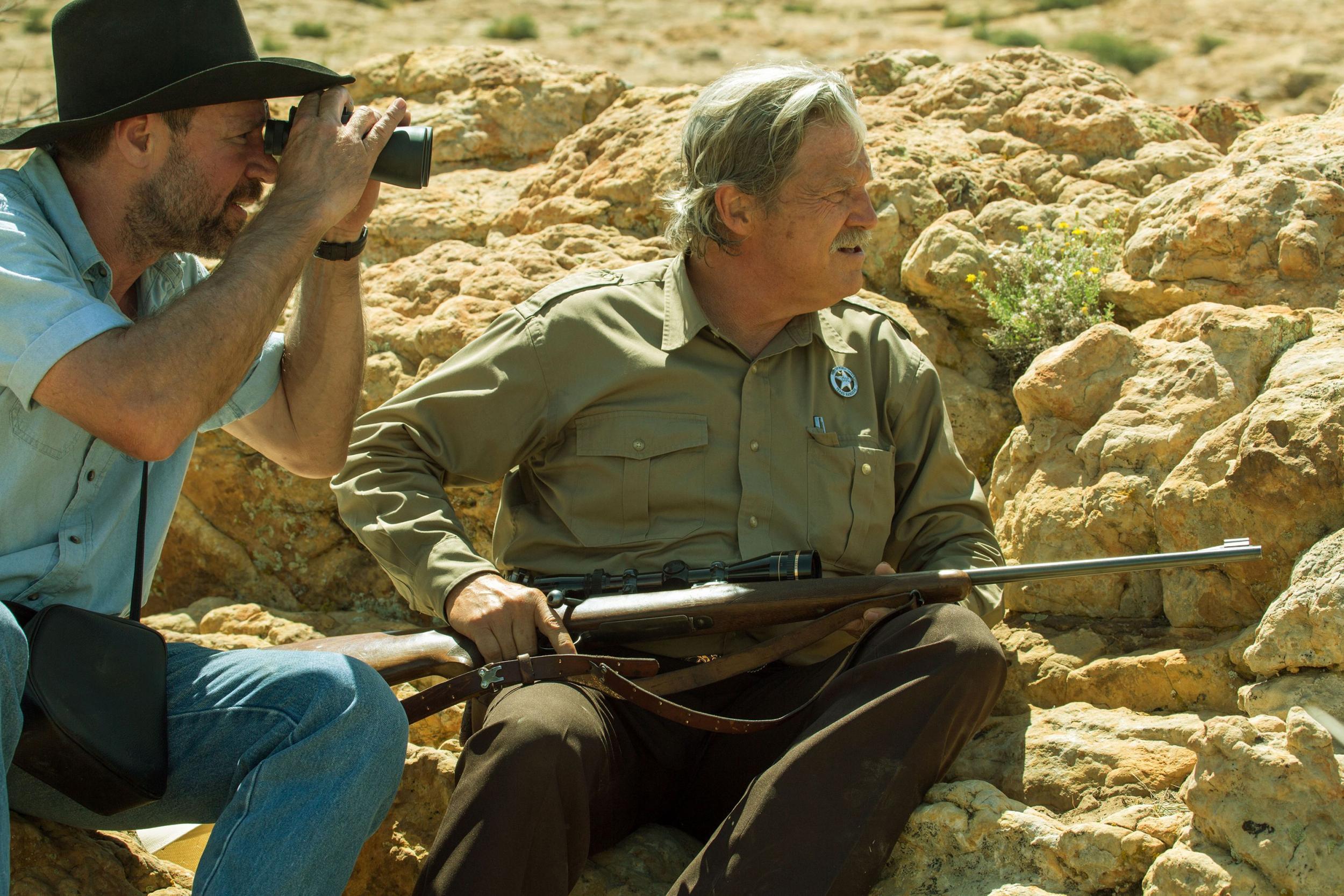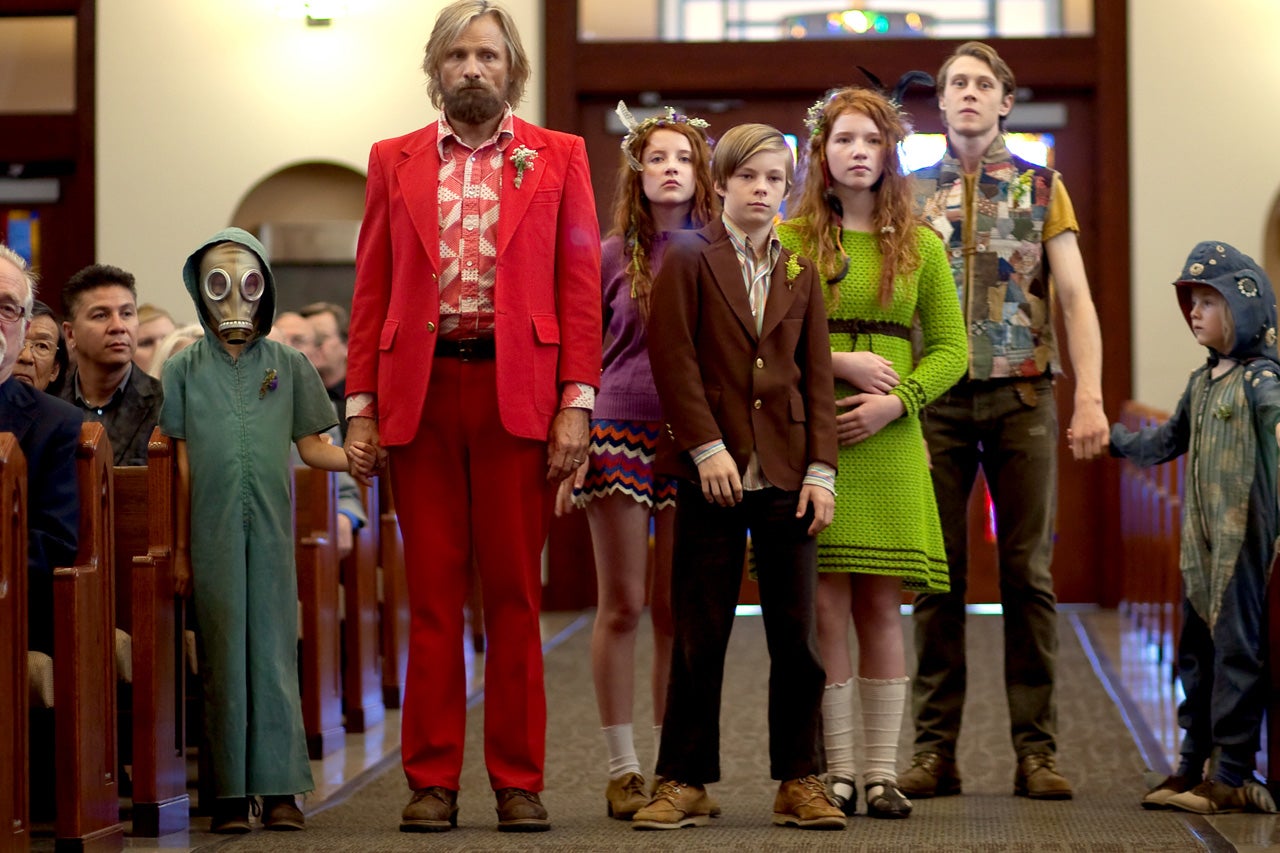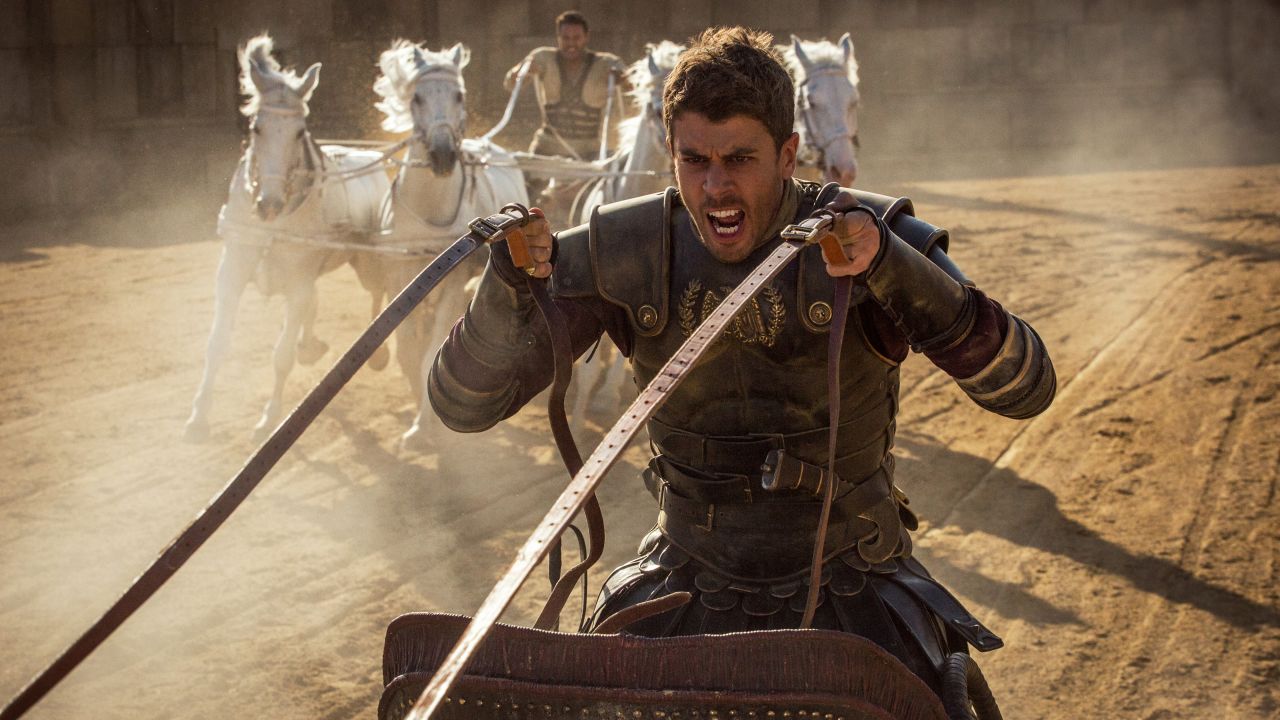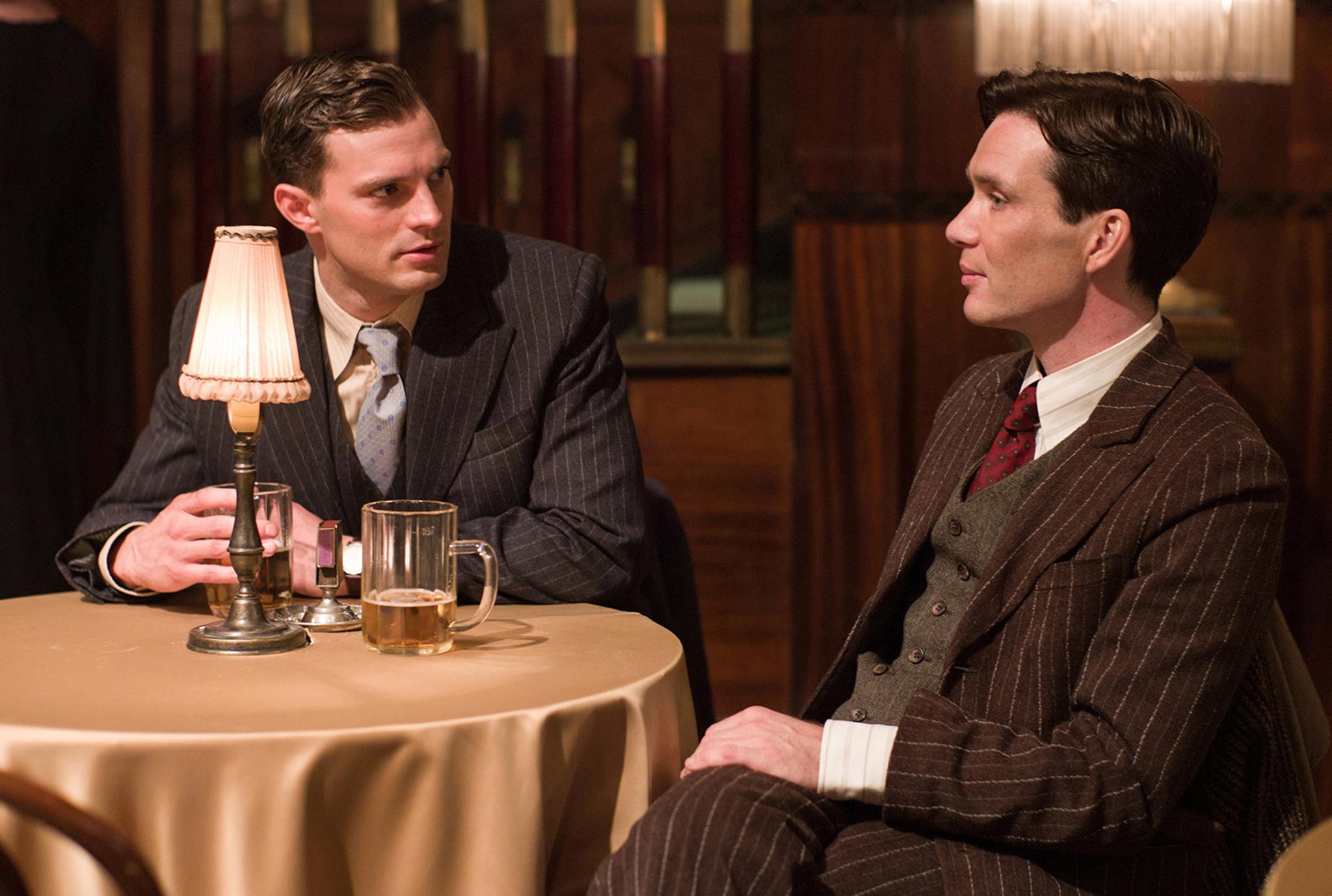Film reviews: Hell or High Water, Captain Fantastic, Ben-Hur, Anthropoid
Also The Blue Room

Your support helps us to tell the story
From reproductive rights to climate change to Big Tech, The Independent is on the ground when the story is developing. Whether it's investigating the financials of Elon Musk's pro-Trump PAC or producing our latest documentary, 'The A Word', which shines a light on the American women fighting for reproductive rights, we know how important it is to parse out the facts from the messaging.
At such a critical moment in US history, we need reporters on the ground. Your donation allows us to keep sending journalists to speak to both sides of the story.
The Independent is trusted by Americans across the entire political spectrum. And unlike many other quality news outlets, we choose not to lock Americans out of our reporting and analysis with paywalls. We believe quality journalism should be available to everyone, paid for by those who can afford it.
Your support makes all the difference.Hell Or High Water (15) - Four Stars - David Mackenzie, 102 mins, starring: Ben Foster, Chris Pine, Jeff Bridges, Katy Mixon, Dale Dickey, Kevin Rankin
Hell Or High Water is a Texan-set thriller with soulfulness and true grit. Its plot - about the two brothers robbing small banks in order to prevent a foreclosure - is secondary. Scottish director David Mackenzie's real focus is on family and friendship, love and loss. The film may be set in the present day but it has the feel of a Depression-era story. Everyone seems to be dirt poor. Their trucks are rusting. The paint is peeling from their houses. The biggest posters on the side of the highways are for debt relief.
Hell and High Water takes its tone from its Nick Cave and Warren Ellis score and from the many country songs from the likes of Waylon Jennings and Gillian Welch on the soundtrack. At times, it makes very lugubrious watching. What gives it such power are its four central performances.
Chris Pine and Ben Foster play Toby and Tanner Howard, the hapless bank robbers (or “cowpokes in ski masks” as one witness describes them.) Toby is a divorcee, keen to do the right thing by his sons. Tanner is volatile and trigger happy. They steal loose bills so the money can’t be traced. Foster brings manic energy to his role while Pine is the more aloof and thoughtful of the brothers. Counterpointing them are the two long in the tooth Texas Rangers in pursuit of them.
Jeff Bridges gives a marvellously cussed and ornery performance as the moustached, walrus-like Marcus Hamilton, a senior officer on the very of retirement. He moves very slowly and speaks in a guttural growl but is a shrewd judge of character. His pet hobby is affectionately needling his colleague Alberto (Gil Birmingham). He jokes continually about Alberto’s Comanche-Mexican background. Birmingham plays the straight man, soaking up his boss’s insults.
Marcus takes a patient and painstaking approach to police work. He is ready to wait out the bank robbers even if it means sitting in a dead end town for days on end
Taylor Sheridan’ screenplay allows plenty of time for both pairs of characters to shoot the breeze. There are scenes in diners, casinos and threadbare restaurants (in which the only food on the menu, served up by a rattlesnake-like waitress, is T-bone steak.) The humour here is as dry as the landscapes. All the characters are strangely fatalistic, as if they half expect the worst to happen. Given the very deliberate pacing, the action sequences, which include chases and a frenzied gunfight, seem all the more arresting when they finally do take place.
There’s no real delineation between heroes and villains. The brothers do some very bad things but still remain essentially sympathetic. The real criminals here often appear to be the bankers who make their profits on the back of the suffering of the poor. There’s no Bonnie and Clyde-style glamour but the film has an emotional depth that you don’t often find in a heist thriller.
Captain Fantastic (15) - Four Stars - Matt Ross, 124 mins, starring: Viggo Mortensen, George MacKay, Samantha Isler, Annalise Basso, Nicholas Hamilton, Shree Crooks

What is the ideal way in which to bring up children? This is the nagging question at the heart of Captain Fantastic, which might best be described as a family movie with very sharp claws. Writer-director Matt Ross brings energy, irony and tenderness to his account of one father’s attempts to raise his kids in the wilds, away from video games and mass consumerism.
The film begins in very savage, Lord Of The Flies-like fashion with the kids in loincloths and with mud-encrusted camouflage crawling through the trees to kill a stag. Their father Ben (Viggo Mortensen) is supervising and this is a rite of passage for his oldest son, Bodevan (MacKay.) “Today, the boy is dead and in his place is a man,” Ben greets the son’s successful stalking of the animal.

Watch Apple TV+ free for 7 days
New subscribers only. £8.99/mo. after free trial. Plan auto-renews until cancelled

Watch Apple TV+ free for 7 days
New subscribers only. £8.99/mo. after free trial. Plan auto-renews until cancelled
In the early scenes, the Cash family enjoys a rip-roaring outdoors lifestyle that would make the kids from Swallows & Amazons deeply envious. Cut off from the rest of the world in remote woodlands in the Pacific Northwest, they scale cliffs, eat at campfires and roam the woods. Ross goes out of the way to make their world seem utterly idyllic. The kids aren’t just resourceful outdoors types. They’ve been rigorously home-schooled. They know all about dialectical materialism and the American Bill of Rights. They all speak Esperanto and they’re allowed to read Nabokov and drink wine. Their father is very honest with them about everything, from the mechanics of sex to the exact causes of a parent’s illness. The teenage Bodozvan is inclined to make remarks like “I am not a Trotskyist anymore, I am a Maoist.”
Inevitably, there are serpents in this paradise. Ben’s mentally unstable wife Leslie (Trin Miller) has been away from home for months. Her death means that the family has to go on the road to her funeral, which is being organised by her wealthy businessman father (Frank Langella) who utterly despises Ben’s hippy lifestyle. Ben is trying to fulfil his wife’s wishes but there are continual hints that their relationship might have been foundering and that she no longer supported the family’s wilderness lifestyle.
The freewheeling scenes of Ben driving his kids across America to the accompaniment of raucous bagpipe music, play like a counter-culture version of Little Miss Sunshine. They rob a supermarket for food. Lean and super-fit themselves, they’re bewildered by the obesity of the Americans they encounter in shopping malls, “fat like hippos.”
Ross is very even-handed in his portrayal of Ben, the “Captain Fantastic,” and his kids. They may be resourceful and have survival skills that put Ray Mears to shame but, in the “civilian” world, it seems as if they are from Mars. There are comical scenes of Bodozvan being chatted up by a beautiful young teenager he meets on a camp site en route. She asks him what music he likes and he replies “Bach.” Popular culture has entirely passed him and his family by.
Gradually, Ben, who seems so rugged and inspiring early on, begins to appear more and more grotesque. The missions he plans for the kids seem increasingly reckless and even cruel. There is a toe-curling scene in which he tries to persuade the kids to celebrate Noam Chomsky’s birthday instead of Christmas and gives them all hunting knives as gifts. Langella’s character, the patriarchal, conservative businessman, represents everything Ben hates but Ross makes it clear that he might be able to bring up the kids better than Ben does. At least, he won’t put them in harm’s way.
Played by a less sympathetic actor, Ben would have across on screen as horribly dogmatic and self-righteous. Mortensen makes him very likeable and convinces us of his idealism. The film has a very clear sense of where it is going until the final reel, at which point it begins to founder. It’s as if the director hasn’t made up his mind about his own characters. He wants to have his (Chomsky) cake and to eat it too, to satirise Ben and to celebrate him.
Ben-Hur (12A) - Two Stars - Timur Bekmambetov, 123 mins, starring: Jack Huston, Toby Kebbell, Morgan Freeman, Nazanin Boniadi, Ayelet Zurer, Sofia Black-D'Elia, Haluk Bilginer, Pilou Asbæk

There is only one question you really need to ask about this latest reboot of Ben-Hur, namely is the chariot race any good? Thankfully, it’s tremendous, a rip-roaring, wheel-rattling action set-piece, with charioteers hurled every which way and with horses running rampant in the crowds. The downside is that the race last only a few minutes and the rest of the film is surprisingly dreary. This is an epic which seems to have been shot on the cheap with the CGI doing the work that the thousands of extras would have done in days gone by. At least, an opening voice-over from Morgan Freeman gives the film a little gravitas.
Jack Huston plays Judah Ben-Hur, a well-to-do Jewish nobleman growing up with his adopted brother Messala, who’s from lowly Roman stock (Kebbell.) They’re devoted to one another - and their affection manifests itself in their extreme competitiveness. Eventually, Messala goes off to join the Roman army. Thanks to his bravery, he rises fast up the ranks.
We’re in the “time of the Messiah.” The Romans are the occupation force, terrorising and crucifying their opponents. Ben-Hur tries to stay out of the fray but a Zealot he has sheltered makes an assassination attempt on Pontius Pilate (a youthful looking but very malevolent Pilou Asbæk). This leads to himself and his family facing ruin. He ends up as a galley slave. From being his best friend, Messala becomes his most bitter enemy.
The film isn’t as stirring as might have been expected. Years pass in only a few moments of screen time. The number of close shots of the characters hints at the restraints that Timur Bekmambetov is facing - he clearly doesn’t have the budget or the means to make a proper widescreen sword and sandal spectacle. Huston plays Ben-Hur as a likeable and very principled man not that much different from Jesus (Rodrigo Santoro), who pops up at various points in the movie to tell characters to love their enemies. As Messala, Kebbell scowls and glares but we know that he’s a good man at heart. Freeman gets to wear dreadlocks as the sheikh who rescues Ben-Hur from slavery and stakes his fortune on his horsemanship. Fitfully entertaining but also curiously old fashioned, this is a film that only really sparks into life when the crowds are baying for blood and the chariots are in action. Apart from that, it seems like The Life Of Brian without the jokes.
Anthropoid (15) - Three Stars - Sean Ellis, 120 mins, starring: Cillian Murphy, Jamie Dornan, Harry Lloyd, Charlotte Le Bon, Toby Jones

The assassination of SS-Obergruppenführer Reinhard Heydrich, the “Butcher of Prague,” in the summer of 1942 is the subject matter of this gruelling but well-made thriller. Cillian Murphy and Jamie Dornan play the two Czech resistance fighters, Josef Gabčík and Jan Kubiš, who were parachuted from London into Czechoslovakia to undertake this mission. Heydrich was third in command of the Third Reich and the most senior Nazi to be killed during the Second World War. His death provoked very bloody reprisals but was still a major blow against the German command.
It seems curious for British filmmakers to be telling a quintessentially Czech story. The Czech characters here all speak in English, with eastern European accents. The recreation of 1940s Prague is impressive. Colours are desaturated to give the film a hint of a newsreel flavour. Director Ellis (who co-scripted the film with Anthony Frewin) captures the extreme tensions the plotters feel during the prolonged build-up to their attempt on Heydrich’s life. They’re courageous but not always as practical as they need to be. Informers lurk almost everywhere. Ellis leaves us in no doubt at all about the extreme brutality of Heydrich and his followers. That’s why the Czech resistance fighters all carry cyanide capsules.
One impressive element here is the way the filmmakers manage seamlessly to interweave a love story with their account of the assassination. Josef and Jan work closely with two Prague women, Marie (Charlotte Le Bon) and Lenka (Ana Geislerová). These women know more about guns than they do and are as brave as them in making sure that the plot succeeds.
In the final reel, the violence escalates dramatically. There are brutal torture scenes, shooting of civilians and a prolonged Alamo-style battle in which hiding resistance members hold out in a church against the might of the Nazis. These scenes are very energetically shot and performed but sometimes lapse into war movie cliché. Amid all the gung-ho heroics, the film risks losing sight of the politics of Operation Anthropoid and why it was considered so important to target Heydrich in spite of the terrible retribution his death was bound to bring.
The Blue Room (15) - Four Stars - Mathieu Amalric, 75 mins, starring: Mathieu Amalric, Léa Drucker, Stéphanie Cléau, Laurent Poitrenaux, Serge Bozon
Amalric’s intriguing Georges Simenon adaptation is pitched between traditional film noir and European art house drama. Amalric himself plays the main character, Julien, a married man charged with some crime (the details of which are withheld.) The press have dubbed him a monster. In continual flashback, as police and lawyers interview him, we’re told the story of his very intense relationship with his mistress Esther (Cléau.) The husband and his mistress meet only a handful of times over the course of their affair but the relationship has seismic consequences.
The storytelling style is elliptical and enigmatic. There’s a nervous energy and furtiveness to Amalric’s performance that accentuates the film’s disorienting feel. He’s shown on the run from a tryst or trying to conceal the bite mark left by his lover . The swirling music adds to the fervid feel. As the adulterous husband, he certainly looks guilty but we are not sure of what. Has he killed someone? Is it remorse over his affair? The filmmakers deliberately tantalise us. On the evidence here, former Bond villain Amalric is every bit as accomplished a director as he is an actor.
Join our commenting forum
Join thought-provoking conversations, follow other Independent readers and see their replies
Comments